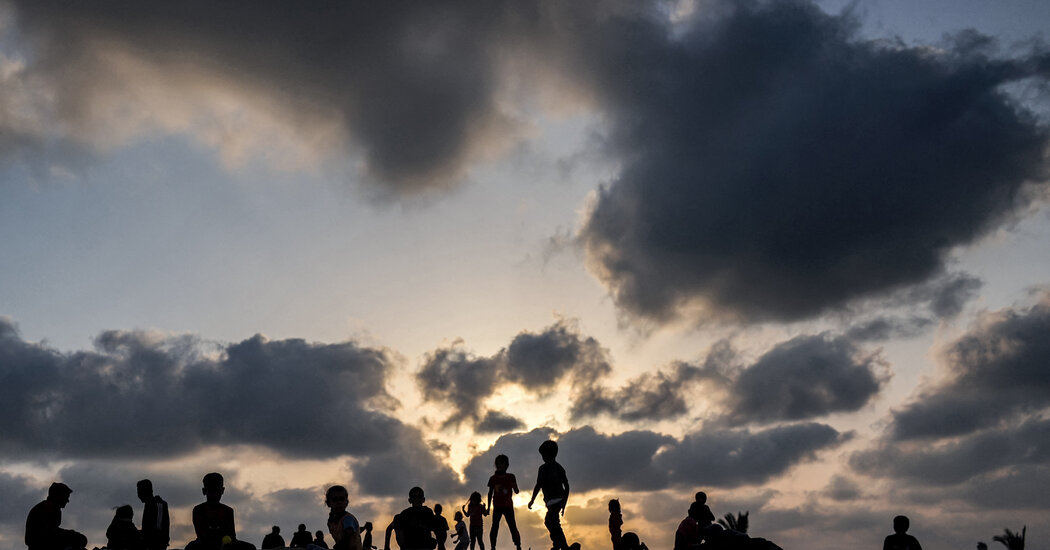The United Nation’s highest court on Tuesday rejected a request from Nicaragua to order Germany to stop supplying arms to Israel.
The judges on the International Court of Justice said no special court order was required, citing Germany’s arguments that it has stringent licensing standards to avoid the misuse of weapons and that it had issued few export licenses since late last year.
The judges’ decision pertained to a broader case brought by Nicaragua against Germany with potentially wide implications on whether suppliers of military aid to Israel share some responsibility for how the weapons are used.
Still, the judges did not grant Germany’s request to throw out the main complaint that Nicaragua has filed against Germany, meaning that case is likely to go ahead.
Nicaragua has argued that Germany is violating the 1948 Genocide Convention because its military and financial aid to Israel is facilitating the possible commission of genocide in Gaza.
A final decision on that Nicaraguan complaint may have to await the court’s decision on a separate case brought by South Africa, alleging that Israel has committed genocide. The decision in the South African complaint could take up to two years.
With the death toll rising from the conflict in Gaza, however, Nicaragua had also asked the I.C.J. to issue an emergency order for Germany to halt its arms exports to Israel altogether and to ensure that weapons already supplied were not unlawfully used.
A majority of the panel declined the request in a 15 to 1 vote, but the court said in its ruling that it “remains deeply concerned about the catastrophic living conditions of Palestinians in the Gaza Strip.”
The ruling, signed by the court’s president, Nawaf Salam, reminded nations of their obligation to avoid providing arms that might be used to violate the Genocide Convention. “All these obligations are incumbent upon Germany as a State party to the said Conventions in its supply of arms to Israel,” the decision said.
William Schabas, a professor of law at Middlesex University in London, said that warning “has provided ammunition to lawyers who will challenge arms shipments to Israel before domestic courts, as is happening right now in several countries.”
The German Foreign Ministry welcomed the court’s ruling.
“Germany is not a party to the conflict in the Middle East — on the contrary: We are working day and night for a two-state solution,” the ministry said in a statement on social media.
The statement added that Germany was also working to ensure that humanitarian aid reaches Gazans and that Hamas was responsible for setting off a “spiral of suffering” in the region, against which it said Israel had a right to defend itself.
Germany and Nicaragua are parties to the 1948 Genocide Convention, which binds them to act to prevent genocide, defined as the intent to destroy a group not only by killing or causing serious bodily or mental harm, but also by inflicting “conditions of life calculated to bring about its physical destruction in whole or in part.”
Israel has repeatedly denied accusations that it is carrying out a genocide in Gaza, arguing that its military has worked to preserve civilian life and that Hamas has used civilians as human shields.
Earlier this year, the I.C.J. found in the South African case that the risk of genocide taking place was plausible. The court issued separate interim orders, requested by South Africa, specifying that Israel must prevent its forces in Gaza from taking actions that are banned under the Genocide Convention, must prevent and punish public statements that constitute incitements to genocide, and must allow more access to humanitarian aid. The judges also called for immediate release of all hostages still held by Hamas.
Germany, a staunch ally of Israel, is second only to the United States in providing it with military assistance. But in presenting its case before the I.C.J., it argued that its shipments to Israel are always licensed under German and European rules. The main thrust of Germany’s argument was that almost all of its recent military assistance to Israel was nonlethal aid.
Unlike Germany, which has given the I.C.J. full jurisdiction, the United States has shielded itself and on most issues has to consent to a case. It has protected itself even further from the Genocide Convention, signing the convention but explicitly refusing the court’s jurisdiction here.
Critics of the Nicaraguan government say that its pursuit of Germany for breaking international law is hypocritical: A recent U.N. report accused Nicaragua of “systematic human rights violations” and increasing repression of government opponents at home.
Erika Solomon contributed reporting.


